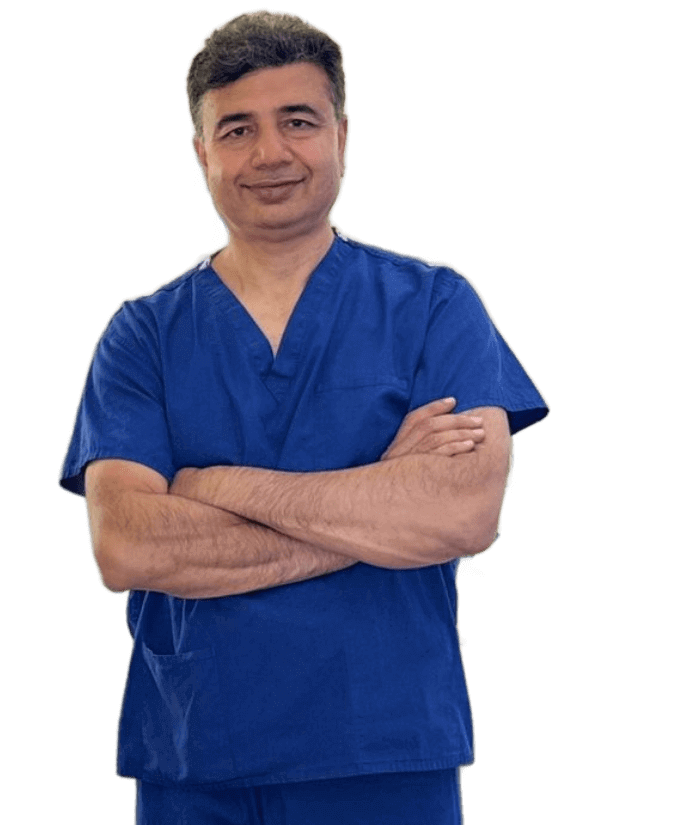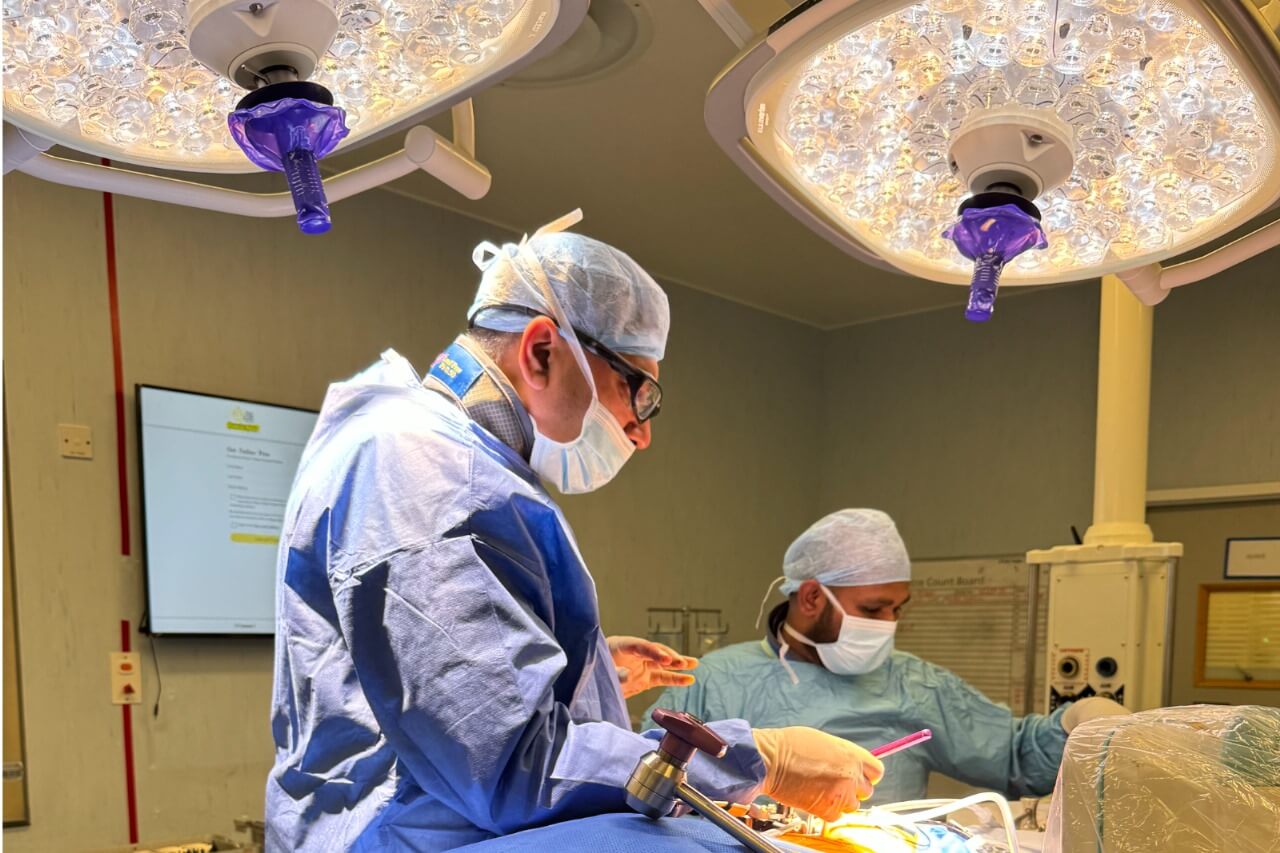
live
Get personalized
spine
healthcare

Irfan Malik
calling...





M.B.B.S, FRCS, FCPS, FRCS(SN), MSc
Consultant Spinal Neurosurgeon
Mr. Irfan Malik is a renowned spinal surgeon, specializing in Endoscopic, Minimally Invasive and Robotic Spine procedures. Recognized as a leading expert in spinal surgery, Mr.Irfan Malik offers comprehensive care for degenerative, infectious, and traumatic spinal conditions
Transforming lives for the better


Mr. Irfan Malik is a leading spinal neurosurgeon, specializing in Endoscopic Spine Surgery, Minimally Invasive Spine Surgery, and Sports Injuries. With over 30 years of experience, his techniques ensure faster recovery and reduced pain for patients.
Speciality
Renowned for his exceptional skill, Mr. Irfan Malik is a leading consultant spinal neurosurgeon with 30+ years of experience. His expertise spans Endoscopic, Robotic Spine and Sports Injuries procedures for various spinal conditions, including degenerative, traumatic, and malignant disorders.
Endoscopy is a minimally invasive medical procedure that uses a flexible or rigid tube with a camera and light on the end
Precision relief with minimal disruption: Keyhole Spinal Surgery for a faster recovery.
Precision meets innovation: Transforming spine care with robotic surgery.
Restoring strength and mobility: Expert care for sports spinal injuries.
Minimally invasive relief: Advanced laser treatment for spine injuries.
Restoring motion and life: Precision disc replacement for lasting spinal health.
Certified and Skilled
Mr. Irfan Malik is a certified medical professional with extensive expertise in neurology, specializing in advanced diagnostics and treatment of neurological disorders. His qualifications are backed by years of experience, cutting-edge research, and a commitment to patient-centered care.
Kings College, London
Surgical Neurology
College of Physicians & Surgeons
Royal College Glasgow
BZU

Zenith Global Health stands as a leading force in the realm of global health

A King's Commendation for Valuable Service is awarded for meritorious service in an operational theatre.

Patients Success Stories

My experience with Mr Malik and his team was first-rate in all respects. Three weeks ago, he administered a nerve root injection... Read More

I was referred to Mr Malik with severe lower spine and nerve pain. His care has been extremely thorough, leaving no... Read More

Mr Malik is a miracle worker. Thorough and attentive, he was able to quickly diagnose a disc issue that had been causing... Read More

I would highly recommend Mr Irfan Malik. After being dismissed by many doctors over a 20 year period with my chronic neck... Read More

After a long time pain in my back and mistreatment of my pain in hospital and with no progress for treatment of... Read More

My experience with Mr Malik and his team was first-rate in all respects. Three weeks ago, he administered a nerve root injection... Read More

I was referred to Mr Malik with severe lower spine and nerve pain. His care has been extremely thorough, leaving no... Read More

Mr Malik is a miracle worker. Thorough and attentive, he was able to quickly diagnose a disc issue that had been causing... Read More

I would highly recommend Mr Irfan Malik. After being dismissed by many doctors over a 20 year period with my chronic neck... Read More

After a long time pain in my back and mistreatment of my pain in hospital and with no progress for treatment of... Read More
Successful Treatments
Happy Patients
Year Experience
Research and Insights
Mr. Irfan Malik is an accomplished medical expert who regularly publishes insightful blogs on neurology, offering valuable knowledge on the latest advancements, research findings, and practical advice for managing neurological conditions.
Recognized and Connected
Showcasing our professional accreditations and affiliations with leading organizations. These endorsements highlight our commitment to excellence and industry standards.
Copyright © 2025 All rights reserved Mr. Irfan Malik